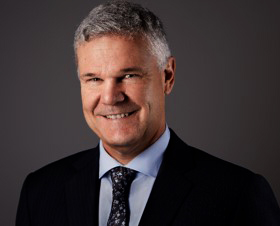David Farmer, an accountant by profession, and with almost 40 years’ experience in local government in NSW and Queensland, is the new Chief Executive Officer of Central Coast Council.
His appointment was announced by Administrator, Dick Persson, at a press conference on Tuesday, March 2.
Farmer will take up the position on April 12.
“His experience is crucial in leading Council toward recovery and will provide strong reassurance to the community that the tough decisions taken now will not be wasted,” Persson said.
“Each of his last three roles involved major challenges in governance and finance.
“These are the same challenges that face this Council and I’m encouraged knowing that David is well equipped in leading the Council through these issues.
“David has a proven track record of success in operating large councils and has been selected based on this solid experience.
“The Central Coast community should feel very reassured that a new and strong CEO will deliver the positive outcome that everyone wants to see,” Persson said.
Farmer said at the press conference that it was going to be a long-term process to earn public trust and that he would go on the journey with staff who have been traumatised by the Council situation.
He has been the Chief Executive of four councils over the past 23 years, being Mudgee in western NSW, Cairns City in far north Queensland, his hometown of Wollongong, and recently as the CEO of Ipswich City Council, the fastest growing Council in Queensland.
Farmer has assisted an elected council successfully return from a period of administration at both Wollongong and Ipswich.
At Cairns, he oversaw the recovery of the organisation, taking more than five years, after a poorly implemented merger.
This involved turning around a deteriorating financial situation and correcting a failed IT systems implementation.
Two of his proudest achievements are the major foreshore projects of the Cairns Esplanade and Wollongong’s Blue Mile.
Across these diverse locations he has been able to partner in developing major industry growth in sectors such as tourism, agribusiness, particularly wine, and urban development.
In Wollongong he led the city as it successfully transitioned from its dependence on its traditional industries of coal and steel making into tertiary sectors such as financial services and international education.
Source:
Media release, March 2
Central Coast Council



